Ten Things You Should Know About Health in Beijing – The Good, the Bad, and the Weird
If you’re new to Beijing or are planning a trip here, there are some things you can’t take for granted when it comes to your health. You might know about China’s air pollution woes but there are other facts of life to take into account here, such as food hygiene and water safety. Here’s a quick primer on what to watch out for.
Smog, Smog, Go Away
Let’s get this one out of the way: Air pollution is the chief health concern for most individuals and families living here. Expats here compare AQI (Air Quality Index) and air purifiers with the same gusto that cold climate dwellers discuss subzero temperatures and snow shovel models. You can’t change the smog, but you can be proactive by investing in air purifiers and pollution masks.
Smoggy AF: Your Complete Guide to Pollution in Beijing
Eins, Zwei, Dry
Beijing’s climate is characterized by hot, humid summers and dry, cold winters. In the spring, severe dust storms sometimes blow into the city from western China. These weather conditions can wreak havoc on the body; many expats complain of dry skin and brittle hair. Stock up on soothing moisturizers, essential oils, and products like argan oil for hair.
Food for Thought
China is plagued by regular food scandals, including rainbow trout being passed off as salmon, dead pigs being dumped in Shanghai’s Huangpu River, pork passed off as beef with red dye and unscrupulous marketing, and cooking oil salvaged from gutters for re-use in local restaurants. Learn how to read labels, ask questions about your food, support organic farms, and do your groceries at reputable supermarkets.
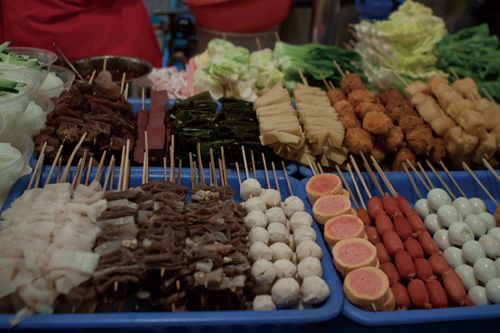
You Are What You Eat
Problems with food hygiene extend to the dinner table. Most newcomers experience at least one bout of the much-feared “Beijing belly,” a.k.a. food poisoning. In addition, Chinese restaurants tend to use liberal amounts of salt, oil, and MSG in their dishes. Vegans and vegetarians may find it difficult to make their dietary restrictions understood, as many servers interpret chi sude (“vegetarian”) to mean “eats seafood” or “consumes meat broth.”
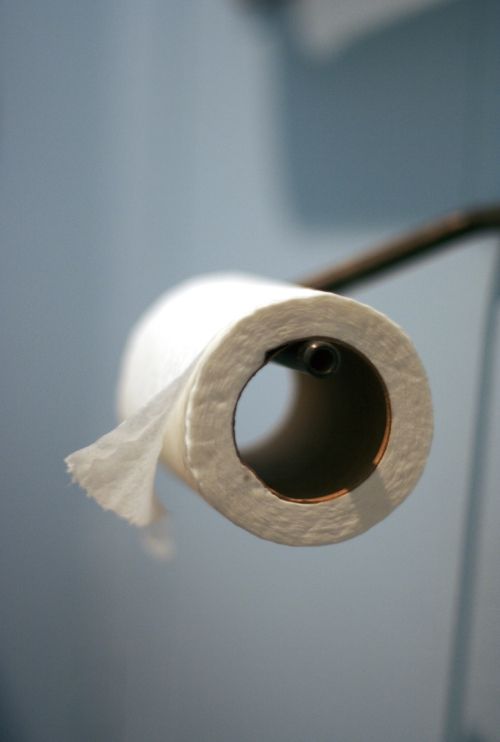
Taking Care of Business
Get into the habit of carrying tissue paper on you at all times; most public bathrooms (and even some restaurant bathrooms) don’t provide toilet paper. What’s more, squat toilets are still the norm here; they’re considered more hygienic than western-style toilets since no contact is involved. Many hutong public bathrooms don’t have divided stalls, so you may find yourself squatting next to elderly Chinese casually reading their morning paper while answering the call of nature or if you're really lucky, Beijing's heaviest smoker who has a penchant for the loudest video game imaginable.
Come Hell or Hard Water
After living here for a while, you might notice that clothes feel dingy and starchy after a wash and your dishes are often spotted with water stains. That’s because Beijing has hard water, which contains a significant amount of dissolved minerals like calcium and magnesium. Hard water can take a toll on your skin and hair, as well as increase energy consumption for household appliances since soap doesn’t lather up as easily. As a result, many families install water filters on their showers and taps.
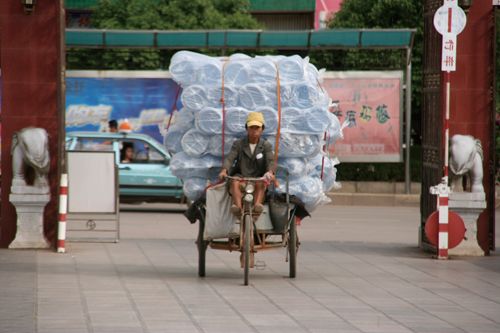
Drinking It In
While we’re on the topic, you can’t drink the tap water in Beijing. Newer residential compounds sometimes have a separate tap for drinking water next to the kitchen faucet, but this isn’t the norm in China. Most people still get their drinking water from 19L bottled jugs mounted on a water cooler. The main brands are Wahaha, Nestle, Robust, and Yanjing. However, past investigations have found widespread cases of fake bottled water. Nestle actually allows consumers to check the authenticity of their water by going to a website (www.95001111.com) and entering the serial number on a peel-off label.
RELATED: Quick and Dirty Tips on How to Save H20
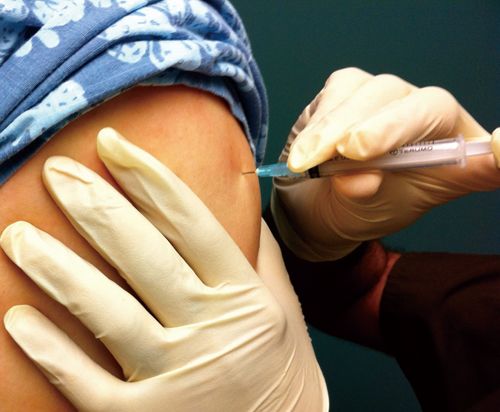
Calling the Shots
All imported vaccines in China must undergo clinical tests and be approved by the State Food and Drug Administration. Because the process can take several years, newer vaccines available overseas may not yet be available in China. Some question the trustworthiness of domestic vaccines, but many international hospitals – including Beijing United Family Hospital – say they’re perfectly safe. According to a FAQ on their website, “the Chinese State Food and Drug Administration (SFDA) mandates that each single batch of vaccine has to pass rigorous testing before being released into the market.”
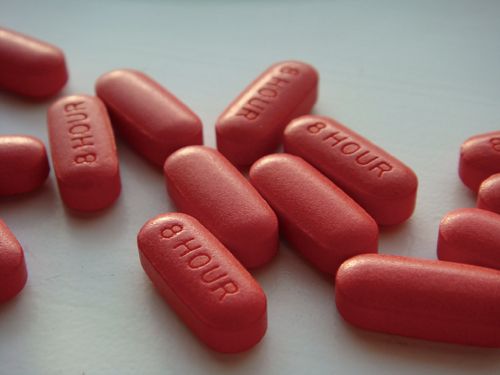
Bitter Medicine
There are no western-style drugstores outside of international hospitals in Beijing, only traditional Chinese medicine (TCM) pharmacies and apothecaries. Most Chinese pharmacies will carry basic western remedies like ibuprofen and allergy medication, but good luck finding Benadryl, Midol, or VapoRub. Most international hospitals have an attached drugstore, but be prepared to pay through the nose if you don’t have a prescription. Luckily, popular Chinese remedies can be substituted for minor aches and pains, such as pipa gao for a sore throat or cough and 999 Ganmaolin for colds.
Talking Shop
Speaking of shopping, you’d be surprised how difficult it is to find some items here that you may take for granted back home: stick deodorant, women’s shaving cream, full-spectrum sunscreen, non-whitening products, good moisturizer, and tampons. Whenever you do find them, they tend to be shockingly expensive. If you haven’t moved to Beijing yet or can rely on family and friends to bring you things, we recommend stocking up on some or all of these items.
This article originally appeared in the beijingkids Health Guide 2014. To get your free copy, email distribution@truerun.com or view it online at Issuu.
READ: Beijing Issues Digital Health Cards on WeChat
Photos: Courtesy of NASA Space Goddard Flight, Jikra Matousek, Terry Johnson, Anja Disseldorp, Blake Patterson, Debs (Flickr)
Related stories :
Comments
New comments are displayed first.Comments
![]() gemstone_v
Submitted by Guest on Wed, 07/23/2014 - 10:15 Permalink
gemstone_v
Submitted by Guest on Wed, 07/23/2014 - 10:15 Permalink
Re: Ten Things You Should Know About Health in Beijing – The...
why use vaporub when you can use TIGER BALM!
![]() Arvi89
Submitted by Guest on Tue, 07/22/2014 - 17:29 Permalink
Arvi89
Submitted by Guest on Tue, 07/22/2014 - 17:29 Permalink
Re: Ten Things You Should Know About Health in Beijing – The...
Well, you do whatever you want, but you can read this: http://www.chinahearsay.com/china-daily-states-the-obvious-dont-drink-the-water-in-beijing/
![]() zhuwensen
Submitted by Guest on Tue, 07/22/2014 - 00:03 Permalink
zhuwensen
Submitted by Guest on Tue, 07/22/2014 - 00:03 Permalink
Re: Ten Things You Should Know About Health in Beijing – The...
We make ice cubes from tap water all the time.
Beijing ain't Latin America or Mexico.
![]() zhuwensen
Submitted by Guest on Sat, 07/19/2014 - 11:54 Permalink
zhuwensen
Submitted by Guest on Sat, 07/19/2014 - 11:54 Permalink
Re: Ten Things You Should Know About Health in Beijing – The...
I was once advised that the Moon was made from Green Cheese.
Likewise, the hate rumours bouncing around should not be believed, either.
Outside beijing you might not want to drink the water.
Sure, I know Chinese in Beijing who drink the water out of the tap.
Most of the reason that Chinese dont drink unboiled water goes back to the old Cholera days...
The guy who wrote the "dance of the sugar plum fairies" died from Cholera (but not in China)
as did the famous US President James Polk.
![]() felicity
Submitted by Guest on Fri, 07/18/2014 - 17:08 Permalink
felicity
Submitted by Guest on Fri, 07/18/2014 - 17:08 Permalink
Re: Ten Things You Should Know About Health in Beijing – The...
Thank you... Which is why I was laughing so hard to zhuwensen's comment.
It is awesome how he is not getting la du zi from drinking Beijing's tap water. Maybe he is Chinese version of Superman.
Anyway, I won't in any occasions recommend drinking Beijing water straight from the tap.
![]() webdude
Submitted by Guest on Fri, 07/18/2014 - 13:42 Permalink
webdude
Submitted by Guest on Fri, 07/18/2014 - 13:42 Permalink
Re: Ten Things You Should Know About Health in Beijing – The...
I know very few expats and do not live in an expat area. None of my Chinese friends drink tap water, nor do they recommend doing so. They drink bottled or boiled water. Do you work for the government, which continues to claim the tap water is safe and we should all visit the Beijing Tap Water Museum? Your message isn't believed by any of the Chinese I know (almost all are college-educated or students at good schools, about 50/50 native BJers and people from other provinces).
BTW, through a connection with the national health agency, I have heard there are serious dairy concerns which have not come to light (the previously publicized dairy problems weren't addressed in the article - an omission?). I suppose you (zhuwensen) think all dairy products are personally safe. I have been advised to avoid certain dairy products and brands.
![]() zhuwensen
Submitted by Guest on Thu, 07/17/2014 - 17:39 Permalink
zhuwensen
Submitted by Guest on Thu, 07/17/2014 - 17:39 Permalink
Re: Ten Things You Should Know About Health in Beijing – The...
Indeed. In Beijing you can drink the water right from the tap and not get
"la du zi".
Seriously.
![]() felicity
Submitted by Guest on Thu, 07/17/2014 - 14:34 Permalink
felicity
Submitted by Guest on Thu, 07/17/2014 - 14:34 Permalink
Re: Ten Things You Should Know About Health in Beijing – The...
Hahahahahaha.... This is hillarious, esp. your reply on number 7. Hahaha...
I wanna know if you can drink it right from the tap and not getting la du zi.
Hahahahaha
![]() zhuwensen
Submitted by Guest on Thu, 07/17/2014 - 14:21 Permalink
zhuwensen
Submitted by Guest on Thu, 07/17/2014 - 14:21 Permalink
Re: Ten Things You Should Know About Health in Beijing – The...
Really it is disturbing to see such nonsense repeated, particularly by some one who seems to be "Chinese" [Sijia Chen]
Lao wai jiushi lao wai.
Let's take it apart piece-by-piece:
------ 1. Air pollution is the chief health concern for most individuals and families living here.
The air in Beijing is much better now than in the 1990's due to a dramatic reduction in coal burning. Most of the so-called pollution in Beijing is dust. Get used to it.
....2. Eins, Zwei, Dry
... Stock up on soothing moisturizers, essential oils, and products like argan oil for hair.
If you have sensitive skin, buy a good hand/body lotion. You'd need to do the same in the northern extremes of the US too.
----3. Food for Thought
China is plagued by regular food scandals, including dead pigs being dumped in Shanghai’s Huangpu River, pork passed off as beef with red dye and unscrupulous marketing, and cooking oil salvaged from gutters for re-use in local restaurants. Learn how to read labels, ask questions about your food, support organic farms, and do your groceries at reputable supermarkets.
Even flaky journalists wont be eating dead pigs from the Huangpu river and they certainly cant be expected to do their homework. Buy fresh stuff from the local markets like the local people do and take it home and wash it and cook it.
----4. You Are What You Eat
Problems with food hygiene extend to the dinner table. Most newcomers experience at least one bout of the much-feared “Beijing belly,” a.k.a. food poisoning. In addition, Chinese restaurants tend to use liberal amounts of salt, oil, and MSG in their dishes. Vegans and vegetarians may find it difficult to make their dietary restrictions understood, as many servers interpret chi sude (“vegetarian”) to mean “eats seafood” or “consumes meat broth.”
Actually you will find that you seldom get sick from eating at the daipaidongs. It's the semi-classy spots that serve you less fresh stuff. Go learn how to cook
----5. Taking Care of Business
Toilet paper... dont leave home without it. Most copies of The Beijinger and other ex-pat-directed fishwrap are too slick (literally) to be much use for following the advice of Tommy Toilet.
----6. Come Hell or Hard Water
After living here for a while, you might notice that clothes feel dingy and starchy after a wash and your dishes are often spotted with water stains. That’s because Beijing has hard water, which contains a significant amount of dissolved minerals like calcium and magnesium. Hard water can take a toll on your skin and hair, as well as increase energy consumption for household appliances since soap doesn’t lather up as easily. As a result, many families install water filters on their showers and taps.
Wow we really do have sensitive skin. Lots of places in the world have hard water. If it really bugs you find a detergent that contains a "builder". If you think that a filter on the shower will remove Ca++ and Mg++, well...
---7. Drinking It In
While we’re on the topic, you can’t drink the tap water in Beijing. Newer residential compounds sometimes have a separate tap for drinking water next to the kitchen faucet, but this isn’t the norm in China. Most people still get their drinking water from 19L bottled jugs mounted on a water cooler. The main brands are Wahaha, Nestle, Robust, and Yanjing. However, past investigations have found widespread cases of fake bottled water. Nestle actually allows consumers to check the authenticity of their water by going to a website (www.95001111.com) and entering the serial number on a peel-off label.
Of course you can drink the water in Beijing and everybody does. You can drink it right out of the tap. I dont drink Wahaha because the daughter of the Wahaha magnate says she admires Hillary Clinton. I wont support such idiocy. Ganten and Nongfu have good-tasting water. Robust is ok too. re:Yanjing: i just drink their beer.
----8. Calling the Shots
All imported vaccines in China must undergo clinical tests and be approved by the State Food and Drug Administration. Because the process can take several years, newer vaccines available overseas may not yet be available in China. Some question the trustworthiness of domestic vaccines, but many international hospitals – including Beijing United Family Hospital – say they’re perfectly safe. According to a FAQ on their website, “the Chinese State Food and Drug Administration (SFDA) mandates that each single batch of vaccine has to pass rigorous testing before being released into the market.”
Most of us dont wish to waste money by being ripped off by the unscrupulous folk who run the international hospitals. You can get good medical care from the local chinese hospitals.
----9. Bitter Medicine
There are no western-style drugstores outside of international hospitals in Beijing, only traditional Chinese medicine (TCM) pharmacies and apothecaries. Most Chinese pharmacies will carry basic western remedies like ibuprofen and allergy medication, but good luck finding Benadryl, Midol, or VapoRub. Most international hospitals have an attached drugstore, but be prepared to pay through the nose if you don’t have a prescription. Luckily, popular Chinese remedies can be substituted for minor aches and pains, such as pipa gao for a sore throat or cough and 999 Ganmaolin for colds.
I think the author should have stocked up on Midol while she was back in Canada or germany. Medicine is sold here an a fraction of the western-ripoff price.
---10. Talking Shop
Speaking of shopping, you’d be surprised how difficult it is to find some items here that you may take for granted back home: stick deodorant, women’s shaving cream, full-spectrum sunscreen, non-whitening products, good moisturizer, and tampons. Whenever you do find them, they tend to be shockingly expensive. If you haven’t moved to Beijing yet or can rely on family and friends to bring you things, we recommend stocking up on some or all of these items.
Just use pads like the Chinese ladies do and otherwise, just adapt.
![]() mtnerror
Submitted by Guest on Thu, 07/17/2014 - 11:57 Permalink
mtnerror
Submitted by Guest on Thu, 07/17/2014 - 11:57 Permalink
Re: Ten Things You Should Know About Health in Beijing – The...
As someone who has installed water filter fixtures in various apts., I'm not advocating the bottles but thought I'd also let it be known a lot of communities will have convenience/general stores in-house, and a lot of times those places will stock the 19L bottled water bottles. This would negate any waiting or syncing up with a delivery person b/c you can simply carry them to your apt. yourself. But yeah, completely recommend the built-in water filters if given the option. It's the filter inside that really counts, however, so don't worry too much about the looks of the dispenser.
![]() britomart
Submitted by Guest on Thu, 07/17/2014 - 09:13 Permalink
britomart
Submitted by Guest on Thu, 07/17/2014 - 09:13 Permalink
Re: Ten Things You Should Know About Health in Beijing – The...
Awesome article... Great job covering all the key need-to-knows for life here.
7. Drinking It In
While we’re on the topic, you can’t drink the tap water in Beijing. Newer residential compounds sometimes have a separate tap for drinking water next to the kitchen faucet, but this isn’t the norm in China. Most people still get their drinking water from 19L bottled jugs mounted on a water cooler. The main brands are Wahaha, Nestle, Robust, and Yanjing. However, past investigations have found widespread cases of fake bottled water. Nestle actually allows consumers to check the authenticity of their water by going to a website (www.95001111.com) and entering the serial number on a peel-off label.
A few years ago, I made the jump from buying bottled water to installing an in-home drinking water filter system. I just had too many bottles with strange-tasting water, and every time I moved, it was difficult to once again look for a trustworthy supplier. That may be something folks moving here may want to consider as well; it's much easier (and more trustworthy) to deal with installing imported filters for drinking water than waiting endless hours for water guy who may or may not show up, and may have suspect water when he does.
I have Aquasana filters supplied by company started by an American guy; he imports the systems directly from the States. Service is excellent; Charlie or one of his assistants comes and installs everything, and if there's ever a problem with a part, replacement is covered by the company, if you enroll in Water for Life deal... The water tastes... NORMAL. Three years now using this system... So much better than messing with the bottled water delivery dudes.
Validate your mobile phone number to post comments.







